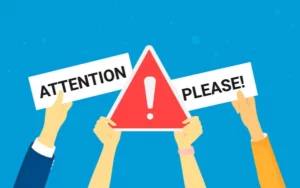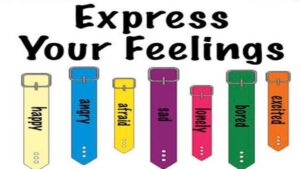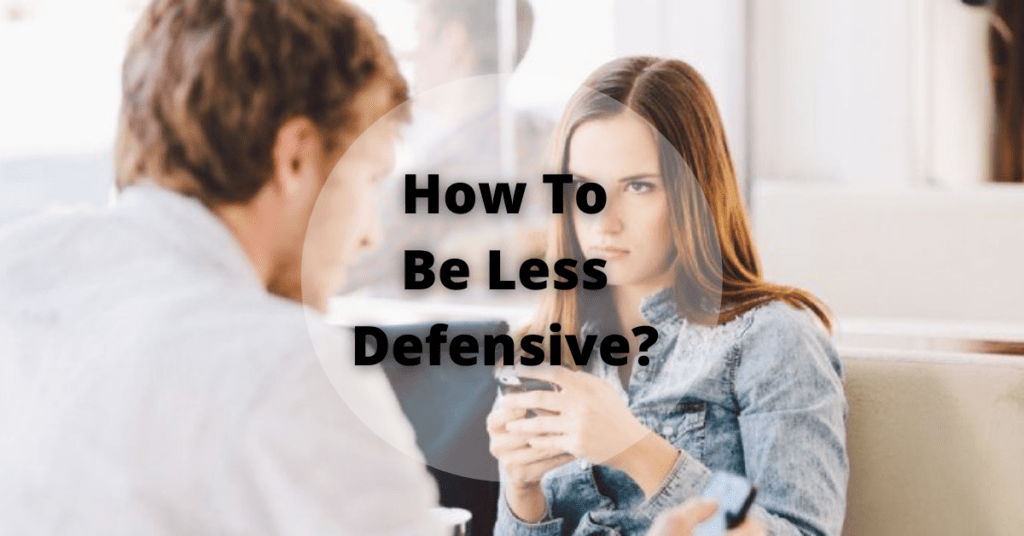In this blog post, we will discuss the most common causes of defensiveness and how to fix them. Defensiveness can be a toxic personality trait, but it is also a natural reaction for many when they feel threatened or attacked. In order to control these feelings in yourself and others, you need to understand what triggers defensive behavior. If you are able to do that, then you can take steps towards being less defensive.
What Is Defensiveness?
 Defensiveness is a reaction to feeling attacked. It can show up as a person talking over someone else, making excuses, or becoming argumentative. Defensive people are often very attached to their point of view and can be difficult to negotiate with.
Defensiveness is a reaction to feeling attacked. It can show up as a person talking over someone else, making excuses, or becoming argumentative. Defensive people are often very attached to their point of view and can be difficult to negotiate with.
There are many reasons why people might become defensive. Sometimes it’s a result of feeling insecure or threatened. Other times, it could be due to past experiences where someone has been harshly criticized or made to feel foolish. Defensive behavior may also be an attempt to protect oneself from getting hurt again.
Negative Effects of Defensiveness

These are some of the negative consequences of being defensive:
- It can lead to misunderstandings and conflict.
- People may not want to work with or associate with defensive individuals.
- Defensiveness can be exhausting and stressful.
- It can interfere with our ability to listen to others and learn from them.
- Defensive can also cause a person to be more deeply entrenched in their position of being right, refusing to listen and validate the other point of view.
- This causes a stalemate in communication and can ultimately prevent any productive problem solving from taking place.
- This affects everyone involved and can lead to nothing positive happening.
How To Be Less Defensive?
Defensiveness can be a sign of a deeper problem than just the need to protect oneself. It can also be an indicator that you don’t really feel safe in your personal and professional relationships.
These are some tips for avoiding getting defensive:
Pay Attention To Your Triggers
 If you can identify what sets you off, then you can be more prepared to deal with it. For example, if someone challenges your opinion, remind yourself that there is no right or wrong answer and that they are just asking for your perspective.
If you can identify what sets you off, then you can be more prepared to deal with it. For example, if someone challenges your opinion, remind yourself that there is no right or wrong answer and that they are just asking for your perspective.
Take Step Back And Assess The Situation
When we’re defensive, it’s often because we feel like we’re being attacked. In reality, the situation may not be as bad as it seems. Try to take a step back and objectively assess the situation before reacting.
Express Your Feelings
 When you bottle up your feelings, they tend to come out in destructive ways. It’s healthier to express them in a constructive way. For example, “I felt really upset when you said that, and it made me feel like I was wrong. Is there a better way we could work this out?”
When you bottle up your feelings, they tend to come out in destructive ways. It’s healthier to express them in a constructive way. For example, “I felt really upset when you said that, and it made me feel like I was wrong. Is there a better way we could work this out?”
Focus On Your Positive Intentions
It can be easy to get caught up in feeling judged or attacked by someone else’s words. It might be helpful to remember the intent behind what they are saying. For example, if your friend is constantly trying to help you improve things about yourself, remind yourself of their good intentions even though it may not always seem so at first glance!
Use Validation Statement
This is an important communication skill because while validating another person’s perspective doesn’t mean you have to agree with them or take on something we didn’t do, it does show that you understand their feelings and respect them. For example, “I can see how you might feel that way” or “I understand why you would say that.”
Listen And Respond
 It’s hard to have a productive conversation if you’re not actually listening to what the other person is saying. paraphrase back to the person what you think they are saying so that they know you are paying attention and make sure to ask questions for clarification.
It’s hard to have a productive conversation if you’re not actually listening to what the other person is saying. paraphrase back to the person what you think they are saying so that they know you are paying attention and make sure to ask questions for clarification.
Take Breath
When we get defensive, our adrenaline starts pumping and this often leads to us speaking without thinking. If possible, take a breath before responding so that you can respond in a more thoughtful way.
Try Calming Activities
 You can try to do some calming activities before or after a situation in which you know you’re going to be defensive. This can help to prevent the negative consequences of defensiveness from taking place.
You can try to do some calming activities before or after a situation in which you know you’re going to be defensive. This can help to prevent the negative consequences of defensiveness from taking place.
Conclusion
In conclusion, defensiveness can lead to a lot of negative consequences in our personal and professional lives. However, there are ways to be less defensive and more productive. By paying attention to your triggers, taking a step back, expressing your feelings, focusing on positive intentions, using validation statements, listening and responding, and taking breaths, you can avoid many of the pitfalls of defensiveness.
There is no right or wrong answer when it comes to defensiveness. It’s important to remember that everyone experiences things differently and that there is no one-size-fits-all approach to dealing with conflict. What works for someone else may not work for you and vice versa. The most important thing is that you try different techniques until you find something that works best for you.
If you are looking for affordable Online Counseling MantraCare can help: Book a trial therapy session


